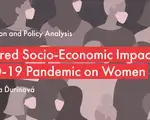Presidential Runoff
Displaying search results 1391 - 1400 of 5057

Parliamentary
2020 Egypt Parliamentary Elections

Parliamentary
2020 Romania Parliamentary Elections

Parliamentary
2020 Iran Parliamentary Elections

Parliamentary
2020 Slovakia Parliamentary Election

Parliamentary
2020 Serbia Parliamentary Elections

Legislative
Presidential
2020 Burkina Faso Presidential and Legislative Elections

Parliamentary
2020 Azerbaijan Parliamentary Elections

Parliamentary
2020 Syria Parliamentary Election


